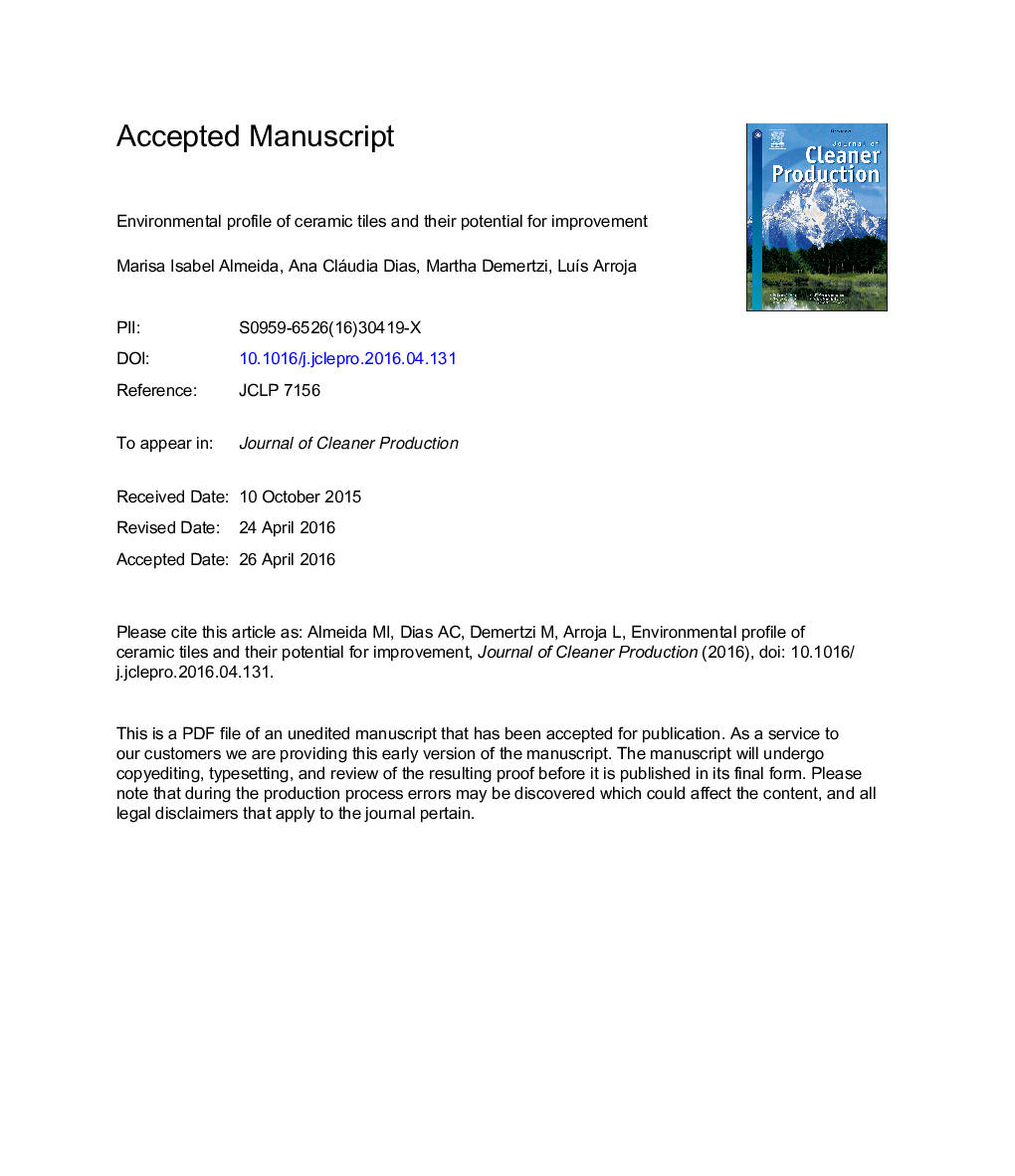| Article ID | Journal | Published Year | Pages | File Type |
|---|---|---|---|---|
| 8101691 | Journal of Cleaner Production | 2016 | 40 Pages |
Abstract
This study evaluates the environmental profile of ceramic tiles produced in Portugal based on a cradle-to-grave Life Cycle Assessment (LCA), including mining, manufacturing, construction, use and final disposal. The main hotspots are identified and improvement actions are suggested in order to reduce the environmental impacts. According to the results, the major hotspot is the production stage (cradle-to-gate), for all categories except ecotoxicity and land use. Within this stage, the processes that have the greatest impact are the following: onsite activities (especially the burning of natural gas for the tile manufacturing process), transport, electricity production and production of natural gas. Among the improvement actions analyzed, the most efficient measure studied to reduce the environmental impacts was a combination of actions to reduce fuel consumption (best available technique), electricity and raw material transport distance, although the economic sustainability could be a critical issue. This work also identified the main environmental impact categories that can be used to define ceramic tiles environmental profile, thus encouraging an update of environmental communication tools based on LCA.
Related Topics
Physical Sciences and Engineering
Energy
Renewable Energy, Sustainability and the Environment
Authors
Marisa Isabel Almeida, Ana Cláudia Dias, Martha Demertzi, LuÃs Arroja,
